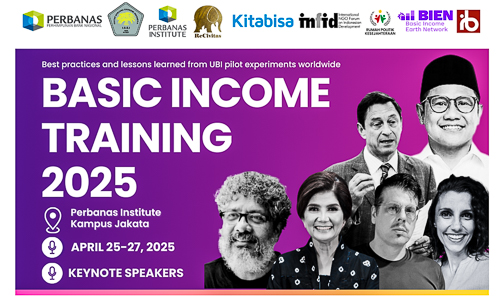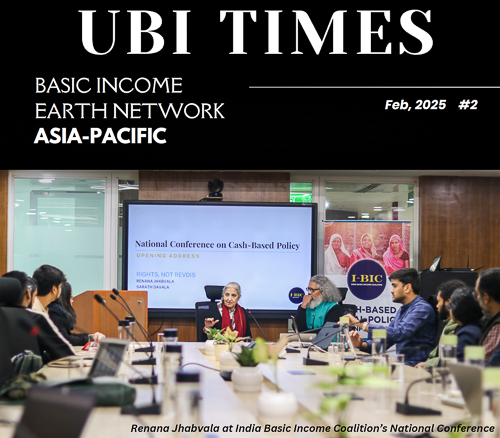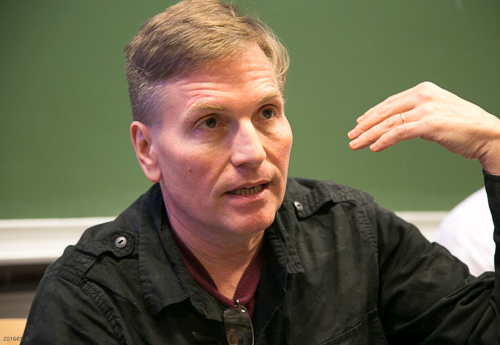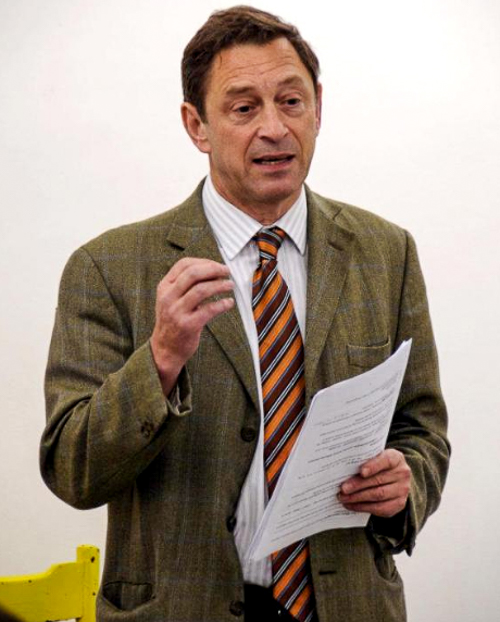by Yannick Vanderborght | Nov 5, 2010 | Research
PEREIRA, Richard (2009), La sécurité économique au XXIe siècle – Revenu annuel garanti/ allocation universelle. L’impératif écologique, démocratique, de la justice et de la sécurité alimentaire, Master Thesis, Athabasca University (CA), online at:
https://www.progressive-economics.ca/wp-content/uploads/2007/06/pereira-fr.pdf
In 2010, Richard Pereira was the Graduate Winner for the “Student Essay Contest” organized by the Canadian Progressive Economics Forum, for a paper entitled “Economic security in the twenty-first century – Guaranteed Annual Income: An ecological, democratic, justice and food security imperative”. The paper is now available in French.
Richard Pereira: rpereira_cda@hotmail.com

by John Michael | Apr 20, 2025 | Events, News
Basic Income Training 2025 (BIT 2025) is a three-day event dedicated to fostering critical discussions, collaborative learning, and practical design around the concept of Universal Basic Income (UBI) in Indonesia. Held from April 25 to 27, 2025, this intensive training brings together keynote speakers, guest experts, and participants from diverse sectors to examine UBI from multiple perspectives, ranging from theoretical foundations to concrete local pilot initiatives.
This training is proudly organized through the collaboration of several key institutions: IndoBIG Network, BIEN Asia Pacific, Perbanas Institute, Yayasan Perbanas, the Indonesian Economic Scholars Association (ISEI), INFID, RPK, and Kitabisa. Their joint commitment reflects Indonesia’s growing momentum toward reimagining social protection and economic justice. The synergy among these organizations makes BIT 2025 not only a training event but also the starting point of a broader movement.
The sessions are structured to deepen participants’ understanding and engagement. The opening day features welcoming remarks and keynote presentations, followed by discussions on global case studies of the basic income movement. On the second day, speakers will explore the significance of UBI for Indonesia’s socio-economic context and guide participants in designing locally grounded UBI pilot projects. The third day shifts toward forward-looking strategies, focusing on building an actionable roadmap for UBI advocacy. More than a one-time gathering, BIT 2025 will be followed by a series of workshops and the initiation of experimental UBI pilot projects, ensuring that the ideas cultivated during the training evolve into real, actionable programs on the ground.
Please find more details here.

by John Michael | Feb 28, 2025 | News
Dear readers, Greetings from the BIEN Asia-Pacific Hub, and welcome to the second edition of UBI Times. The response to our inaugural edition has been truly heartening. The messages of support, the thoughtful reflections, and the new connections we have made in the past month reaffirm the solidarity for UBI advocacy in the region. Beyond just appreciation, the newsletter has opened new pathways for collaboration—connecting us with individuals and organizations eager to work together in advancing UBI. This is exactly what we hoped for—a space where ideas, experiences, and strategies for UBI can be shared and nurtured.
One of the most inspiring updates in this edition comes from Tuvalu, where UBI 4 Climate Justice is pioneering the use of unconditional cash transfers to support climate activists. Read more.

by Scott Jacobsen | Jan 27, 2025 | News
Today, we are joined by Karl Widerquist, a political philosophy professor at Georgetown University-Qatar. He has an extensive research and publication record on universal basic income. He uses an interdisciplinary approach, incorporating economics, politics, philosophy, and anthropology into his work. He has also developed indepentarian political theory, specifically within his framework of justice as the pursuit of accord (JPA). What do indepentarianism and justice as the pursuit of accord mean?
Prof. Karl Widerquist: The idea of justice as the pursuit of accord stems from criticisms I’ve made of natural rights theory and social contract theory. We need a new framework to justify social arrangements. A well-intentioned individual seeking to organize social arrangements and interact with others should aim to cooperate rather than impose their will.
To read the full interview, click here.

by Scott Jacobsen | Jan 10, 2025 | News
Dr. Guy Standing is a Professorial Research Associate at SOAS University of London and a founding member and honorary co-president of the Basic Income Earth Network (BIEN). This non-governmental organization promotes a basic income for all. Standing discusses the concept of emergency-based basic income (EBI) as a tool for recovery in crises like natural disasters, wars, or economic collapses. Standing highlights its effectiveness in creating economic stability, reducing corruption, and fostering social solidarity. Using examples from Sri Lanka, Ukraine, and India, he explains how EBI directly empowers individuals and communities while stimulating local economies. They also explore issues like equitable distribution, the treatment of migrants, and potential corruption, emphasizing transparency and universal access. Standing notes growing global interest, including support from the Vatican, and underscores EBI’s role in promoting justice and hope.
To read the interview, click here.





